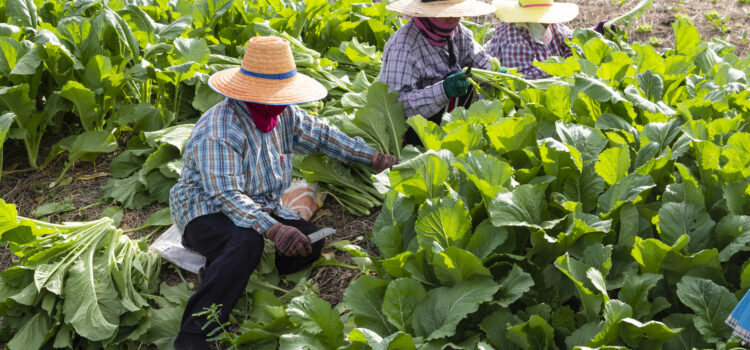
Essential workers are a necessity in keeping the economy afloat during the COVID-19 pandemic. Because essential workers risk their lives every day, it’s clear why essential workers like first responders and medical personnel have received preferential treatment with special discounts and early access into places like grocery stores.
However, it’s not very often a small business offers a farmworker, who is also considered essential, a special discount, and it’s not very often grocery store employees call for farmworkers to jump to the front of a long entrance line to enter a store.
“I know that during these times, my parents’ work only became harder for them,” said David, a junior high student from McFarland and son of farmworkers. “With the Coronavirus spreading, I know they could possibly be putting their lives in danger. Working outside during a worldwide lock down because of COVID-19 can be a bit scary…That’s why I respect them for what they do.”
Most of the time, essential workers need a badge as proof to receive the preferential treatment, but badges aren’t part of the farmworker uniform. It seems farmworkers are the forgotten essential workers, the workers that risk their lives to feed the community.
But how are these essential workers forgotten? There are nearly 450,000 farmworkers in the state of California, which makes up about half of the farmworkers in the country, according to Armando Elenes, the secretary treasurer for the UFW.
Children of farmworkers worry about their parents’ safety at work. Farmworkers can hardly practice social distancing at work, and many do not have the proper personal protective equipment to stay healthy. This leaves kids worrying about their parents’ return.
“I think my parents feel terrified because they might end up getting sick or having a terrible disease, and they’re just not ready for that,” said McFarland junior high student Selena, whose father is a farmworker.
Sure, field workers are used to working in difficult conditions. They work through the hottest summers and the coldest winters. But the conditions workers are facing during the pandemic are different.
“I feel like she would be better off staying at home, but who else would provide for us,” said McFarland junior high student Danyela of her mother who is a farmworker.
Worrying about parents has been a distraction for many students, making it difficult to focus on their distance learning.
“Sometimes, I just start thinking about the illnesses and injuries that they can get,” said Carime, a daughter of farmworkers.
However, the children of these essential workers understand why their parents are working in these dangerous conditions. It’s a way for them to provide.
“Without their jobs, who knows how I’d be living,” said David. “My father stopped going to school early in his life, so working in the fields would most likely be the best choice.”
“I, of course, would not want my dad to get sick, but how would we get food on our plates,” Selena asked. “How am I, as a young person, supposed to help out?”
“As much as I wish that they could get safer jobs, I do think that they should be working because how else are they going to pay the bills,” asked Diana, a junior high student from McFarland and daughter of farmworkers.
Despite their worries, children of these essential workers are trying their best to do the work their parents encourage them to do.
“Although my parents do work under harsh conditions, I know that I can help them if I just work hard in school,” said David. “So, I try not to get distracted with worrying about my parents too much.
Selena said, “The best case scenario is for us to have a positive mindset and be more cautious.”